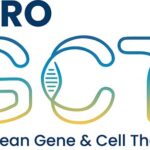Product Type Expertise
Area of expertise
- Gene therapy
- Cell therapy
- Recombinant proteins & Antibodies
- Tissue engineering
- Live Biotherapeutics Products / Microbiota-based therapies
- Focus on Immuno-oncology
Gene therapy
Gene therapy consists in using genetic material for the treatment or prevention of diseases. Viral or non-viral vectors can be designed to transfer the functional copy of a gene or any nucleotide sequence of interest. Nucleases can be used for genetic editing such as gene inactivation, gene correction, gene insertion or pathway depending on the modality of the therapy, spanning a very wide variety of indications, most of which are rare diseases. Genetically modified T-cells and NK-cells are particularly promising for cancer treatments. Some Chimeric Antigen Receptor (CAR) T cell products are already approved for the treatment of refractory large B-cell lymphoma and the treatment of refractory multiple myeloma.
Key challenges we help you with:
- Plasmid design
- Viral vector safety
- Manufacturing process robustness
- GMP (good manufacturing practice) manufacturing and quality control
cell therapy
Cell therapies include several approaches requiring the manipulation of cells or tissues to prevent, lessen or cure a disease. The cells may originate from the patient (autologous cells) or a donor (allogeneic cells) and can be selected, expanded, differentiated or pharmacologically treated ex vivo. Cell therapy products can be used for many therapeutic applications in regenerative medicine and cellular immunotherapy. Stem cell therapies can be based on hematopoietic stem cells, mesenchymal stem cells or induced pluripotent stem cells for example. Cellular immunotherapy has become one of the most promising approaches for cancers with immune cells like macrophages, T cells, NK cells or dendritic cells.
Unlike the traditional chemical compounds, the complexity of lab engineered cells or viral vectors presents significant technical challenges for non-clinical efficacy and toxicity studies, manufacturing control and regulatory assessment. Furthermore, the overwhelmed market competitiveness and medical commitment in various rare and/or life-threatening diseases bring additional pressure for accelerated time to approval.
Key challenges we help you with:
- Cell bank management
- Animal model selection and toxicology package
- Clinical trial design
- GMP (good manufacturing practice) manufacturing and quality control
Recombinant proteins and antibodies
Biologics, known as recombinant proteins, are used for cell culture, diagnostics and therapeutic applications. Recombinant proteins, enzymes or hormones, antibodies have emerged over the last two decades as the fastest growing class. Recombinant antibodies have had several subclasses (IgG1, IgG4, bispecific, ScFv) or origin (fully human, humanized, camelid…) or deatures (antibody drug conjugates, …).
Key challenges we help you with:
- Discovery, selection & humanization
- Yield optimization and robustness
- Formulation study
- Viral clearance study
- Product characterization
- Batch release and stability study
- Animal and first in human studies
Tissue Engineering
According to the NIH (National Institute of Health) in the USA, tissue engineering refers to the practice of combining scaffolds, cells, and biologically active molecules into functional tissues. The goal of tissue engineering is to assemble functional constructs that restore, maintain, or improve damaged tissues or whole organs EMA (European Medicine Agency) defines tissue-engineered products as medicines containing engineered cells or tissues which is intended to regenerate, repair or replace a human tissue. We support your team for the design of the manufacturing process, for the quality control strategy, for the conception and the analysis of non-clinical safety and efficacy studies, for the regulatory strategy and for the setup of phase I/II clinical trials.
Key challenges we help you with:
- Cell culture
- Quality Control strategy
- Choice of scaffold
- Assessment of functionality
- Tox studies
- Regulatory strategy
Live Biotherapeutics Products / Microbiota-based therapies
Microbiota-based drugs in development include Fecal Matter Transplant, single-strain, multi-strain/consortia or microbial ecosystems-based bacteria are isolated from healthy donors. They are defined as biologics containing live organisms for prevention, treatment or cure of a human disease or condition and generally fall under the Live Biotherapeutics Products (LBP) regulations. This emerging class of drugs target various indications such as autoimmunity, oncology, neurology…etc. This approach poses specific challenges in the early-stage drug product development.
Key challenges we help you with:
- Microbiome strain selection
- Microbiome characterization
- Process and analytical development
- Proof of Concept and toxicology studies
- Regulatory submissions
Focus on Immuno-oncology
Immuno-oncology is a type of immunotherapy that helps the immune system to fight cancer cells. It can be based on cytokines, antibodies or cells like NK and T cells. Cells can be genetically modified to express a chimeric antigen receptor or a recombinant T-cell receptor.
Key challenges we can help with:
- Design of molecular constructs
- Strategy for genetic modification of immune cells
- Autologous (patient’s own cells) versus allogeneic setting (cells from a healthy donor)
- Proof of Concept, safety and efficacy studies
- Process and analytical development


